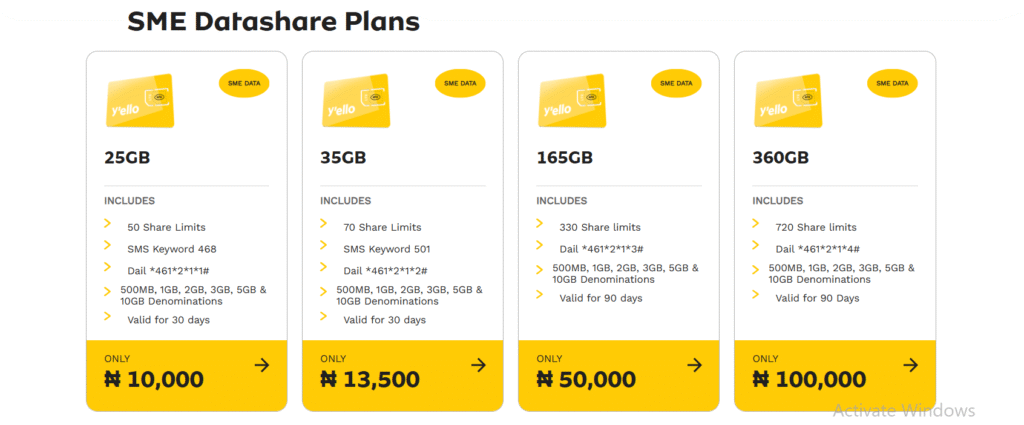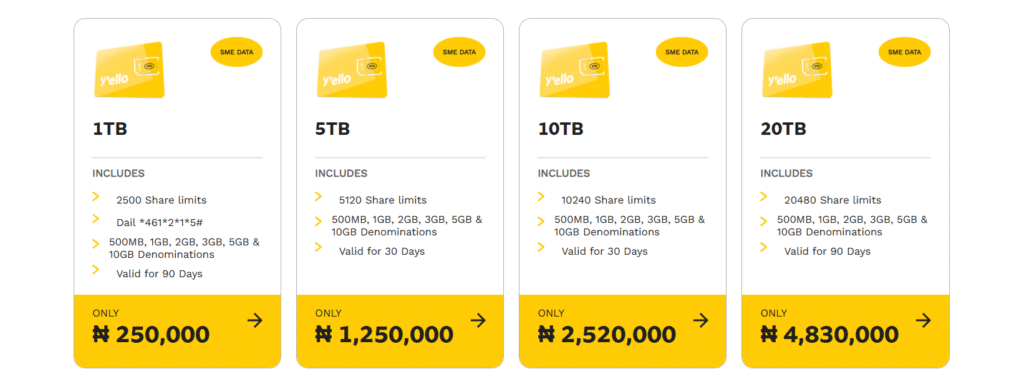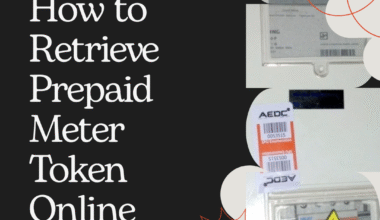SME Data simply refers to a type of internet data plan specially prepared for Small and Medium-sized Enterprises. If you’ve ever bought internet data from a third-party vendor, you may have come across this term and wondered what it means. Is it the same as the regular data you buy? This article will give you all the answers you need.
What is SME Data?
SME data is a specially designed internet plan for Small and Medium-sized Enterprises (SMEs) that rely on affordable and reliable internet to keep their operations running smoothly. These plans are commonly offered by top Nigerian network providers such as MTN, Airtel, Glo, and 9mobile.
What makes SME data particularly attractive is its affordability and sharing capability. You can buy large data bundles at discounted rates and distribute them to employees, customers, or even use them for data reselling. Distribution is done using a simple sharing code, and you can monitor usage easily through a provider’s dashboard or app. For business owners, data resellers, or teams needing group access, SME data is a cost-effective solution.
MTN SME DataShare has been designed to be a simple, intuitive self-service solution, putting you in full control of your spend on data across your business. To enjoy this service, you will need to first migrate to the MTN BizPlus tariff plan by dialling 460*1*1#
READ MORE: What is Corporate Gifting (CG)? How Long Does Corporate Data Last?
READ MORE: What's the difference between MTN SME, MTN CG and MTN SME2 Data - Everything to know
How to Choose Between SME and Corporate Data Plans?
Choosing the right data plan for your business—SME or Corporate—depends on your specific operational needs. Let’s break down the key differences to help you decide:
1. Data Allowance
- SME Data Plans generally offer larger data volumes for less money. If your business requires heavy data consumption—like uploading videos, managing online platforms, or multiple staff working online—SME plans give you more gigabytes to work with.
- Corporate Data Plans typically come in smaller sizes and may be more suitable for businesses with light browsing needs or focused departments that use minimal data.
2. Validity Period
- SME Plans often provide longer validity—usually 30 days—making them ideal if you don’t want the pressure of constant renewals.
- Corporate Plans might have shorter validity windows depending on your provider, which could work if your business prefers frequent renewals for budgeting or control.
3. Internet Speed
- Corporate Data Plans tend to be faster and more stable because they are prioritized for enterprise users. They’re excellent for businesses that require consistent, high-speed connections—like those running cloud-based services or hosting webinars.
- SME Plans may have moderate speed that fluctuates depending on network congestion. If your business activities aren’t speed-sensitive, the occasional lag might be a fair trade-off for lower costs.
4. Flexibility & Sharing
- One major advantage of SME Plans is sharing flexibility. You can allocate data to multiple users—whether team members or customers—and adjust quotas as needed. This makes them ideal for businesses with teams or resellers.
- Corporate Plans are usually non-shareable and are tied to one device or user. This is great for businesses that want strict control over how and where the data is used.
So, Which One is Right for You?
Ask yourself:
- Do I need to share data with a team? → Go for SME Data.
- Is high-speed internet critical for my operations? → Choose Corporate Data.
- Do I prefer cheaper plans with flexible use? → SME Plans win here.
- Do I need a dedicated line with consistent speed and support? → Corporate Plans are more suitable.
In short, SME data plans offer better value and flexibility for growing businesses or resellers, while corporate data plans deliver premium speed and support for high-level organizational use.
Frequently Asked Questions (FAQs)
1. What is the difference between SME and Corporate data?
SME data is designed for small and medium businesses and allows sharing among multiple users, making it ideal for resellers and teams. Corporate data, on the other hand, is more stable, faster, and usually meant for a single user or device, making it suitable for larger organizations.
2. Can I share corporate data with others?
No, corporate data is typically restricted to the original user or device and cannot be shared like SME data. It’s meant for secure and controlled use.
3. How do I share SME data with others?
If you’re using a provider like MTN, you can share SME data via a transfer code or using their app/portal. Some platforms allow you to assign specific data amounts to different phone numbers.
4. Is SME data available on all networks in Nigeria?
Yes. Major providers like MTN, Airtel, Glo, and 9mobile offer SME data plans, although features like sharing methods and pricing may vary slightly across networks.
5. Which is more affordable: SME or Corporate data?
SME data is generally more affordable, especially when you buy in bulk. Corporate data tends to be pricier due to its speed, reliability, and business-grade support.
6. Can I use SME data for my personal browsing?
Absolutely. Even though it’s designed for business use, individuals can also use SME data—especially if they need large, cost-effective data bundles.
7. Can I switch between SME and Corporate data plans?
Yes, but it depends on your provider. You may need to purchase a different plan or use a specific code or portal depending on the type of data you want.
8. Which data type is best for reselling?
SME data is the best option for data resellers. It allows sharing, better pricing margins, and flexibility, making it perfect for resale businesses.
9. What happens if I don’t use all my SME or corporate data before the expiration date?
Unused data will expire unless your provider offers a rollover feature. Be sure to check the validity terms of your specific plan.
10. Can I monitor who uses my SME data?
Yes. Most platforms or reseller dashboards allow you to see data usage, assign limits, and manage connected users effectively.










